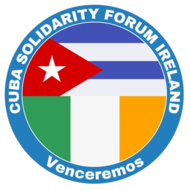
Chavez Ignited the Bolivarian Revolution with the 4F Rebellion
On Feb. 4, 1992, five army units under Colonel Hugo Chavez’s command moved into Caracas to seize key military and communications installations throughout the city.
On Friday, Venezuelans remember the 30th anniversary of the anti-imperialist rebellion that Colonel Hugo Chavez led against President Carlos Perez (1989-1993), a corrupt politician who implemented neoliberal policies that worsened the people’s living conditions.
On Feb. 4, 1992, five army units under Chavez’s command moved into Caracas to seize key military and communications installations throughout the city, including the presidential residence, the government headquarters (the Miraflores Palace), the Defense Ministry, La Carlota military airport, and the Military Museum.
Supported by the civilian population, the rebel forces made swift advances and took control of large cities such as Valencia, Maracaibo, and Maracay. However, betrayals and other unforeseen circumstances left Chavez with a small group of rebels cut off in the Military Museum.
Since he did not have any means of conveying orders to his collaborators, Chavez soon gave himself up to the government to avoid unnecessary deaths. After doing so, he was allowed to speak on national television, through which he assured that they had only failed “for now,” a phrase that subtly became the foretaste of the social revolution to come.
Eighteen soldiers and 49 civilians were killed in the rebellion, which failed to comply with its military objectives but stood out Chavez as the popular leader against the elite and its “kleptocracy.” After spending two years in the San Francisco de Yare prison, Chavez founded the Movement for the Fifth Republic (MVR), a party with which he won the 1998 presidential elections.
Once in power, he prompted social reforms that led to the Bolivarian revolution. Such policies comprised the approval of the Hydrocarbons Law, which allowed Venezuela to exercise full sovereignty over its oil resources, and the development of the Barrio Adentro and the Sucre mission, which improved the primary health care system and opened new university quotas, respectively.
“With the February 1992 rebellion, Venezuela experienced the greatest political tremor ever since the independence war. It entered a phase of revolutionary consciousness thanks to the leadership of Commander Chavez, who demonstrated that social justice can only be achieved with a radical change,” President Nicolas Maduro highlighted.
source: Telesur

